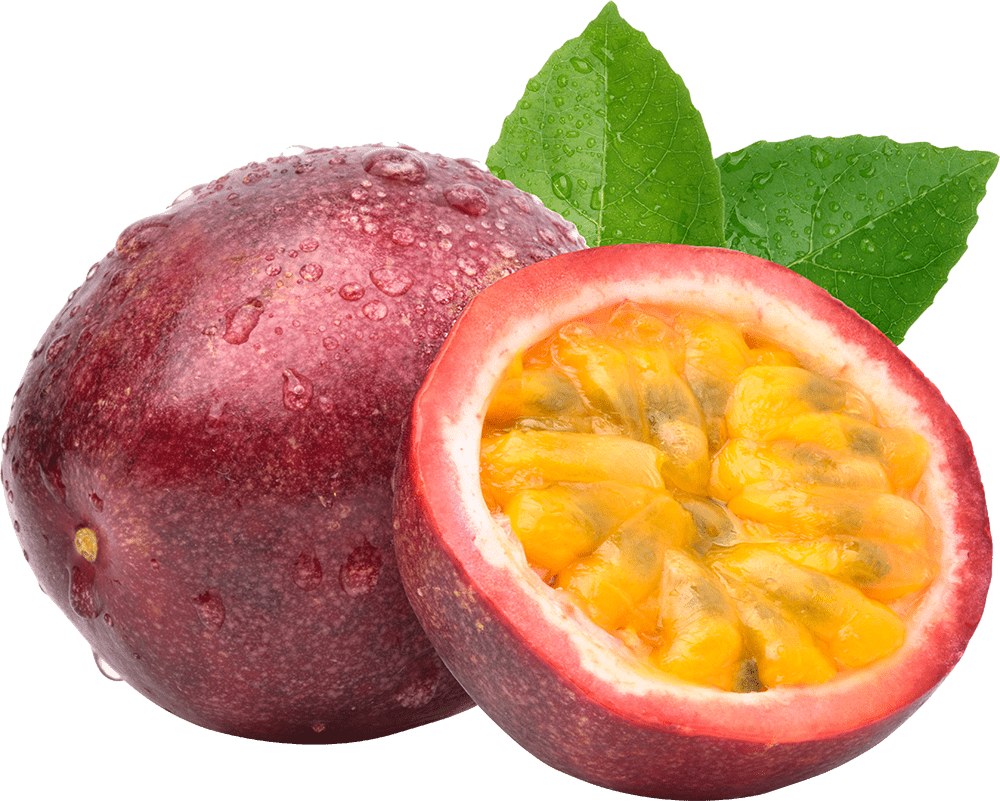Health Benefits of Passion Fruit
What are the health benefits of passion fruit?
Passion fruit offers several health benefits when consumed as part of a balanced diet:
- Rich in Vitamins and Minerals: Passion fruit is a good source of vitamin A and vitamin C, as well as several minerals like potassium and iron.
- Rich in Antioxidants: Passion fruit contains antioxidants like vitamin C and beta-carotene, which help protect cells from damage caused by free radicals and may reduce the risk of chronic diseases, including some cancers such as lung cancer, prostate cancer, skin cancer and colorectal cancer.
- Heart Health: The fiber, potassium, and antioxidants in passion fruit can help support heart health by lowering cholesterol levels, reducing blood pressure, and decreasing the risk of heart disease.
- Digestive Health: The fiber in passion fruit can help promote healthy digestion and prevent constipation.
- Immune System Support: The vitamin C in passion fruit can help boost the immune system and protect against illnesses.
- Skin Health: The vitamin C and other antioxidants in passion fruit can help protect the skin from damage caused by UV rays and pollution, and may promote collagen production for healthy skin.
- Eye Health: The beta-carotene in passion fruit is converted into vitamin A in the body, which is important for eye health and may reduce the risk of age-related macular degeneration.
- Weight Management: Passion fruit is low in calories but high in fiber, which can help you feel full and satisfied, making it a great choice for weight management.
Overall, passion fruit is a nutritious fruit that can be a healthy addition to your diet. It can be enjoyed fresh or used in a variety of dishes, such as smoothies, desserts, and salads, to add flavor and nutritional value.
What are the health risks of passion fruit?
Passion fruit is generally safe for most people when consumed as part of a balanced diet. However, there are a few potential health risks associated with passion fruit:
- Allergic Reactions: Some individuals may be allergic to passion fruit, which can cause mild symptoms such as itching and hives, or more severe reactions such as anaphylaxis.
- Digestive Issues: Some people may experience digestive issues such as bloating, gas, or diarrhea from eating passion fruit, especially if consumed in large quantities.
- Interactions with Medications: Passion fruit may interact with certain medications, such as blood thinners or medications for high blood pressure. If you are taking medication, consult your healthcare provider before consuming large amounts of passion fruit or passion fruit supplements.
- Pesticide Residue: Like other fruits, passion fruit may contain pesticide residue, especially if not organically grown. Washing passion fruit thoroughly before eating it can help reduce pesticide exposure.
- Seed Intolerance: Some individuals may find the seeds in passion fruit to be irritating to the digestive tract. Straining the pulp before consuming it can help remove the seeds.
Overall, passion fruit is a nutritious fruit that can be a healthy part of your diet. However, individuals with allergies, digestive issues, or concerns about medication interactions should consume passion fruit with caution and consult with a healthcare professional if they have any concerns.




